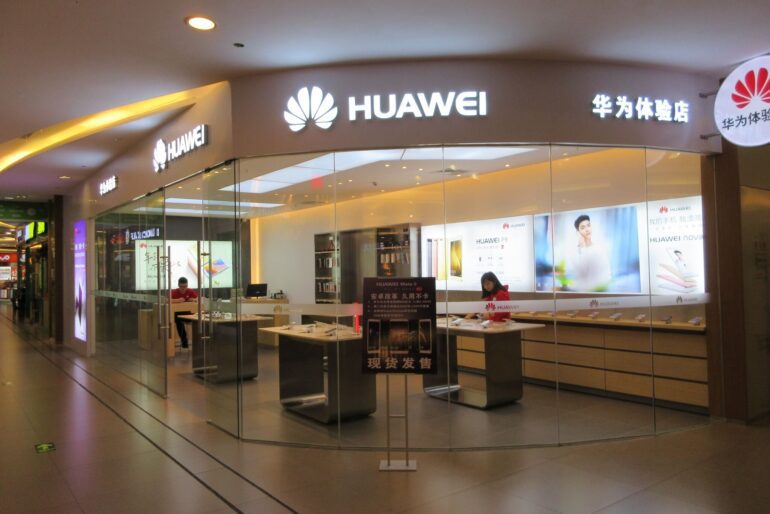TL;DR:
- Huawei has launched a challenge to develop machine learning models that reduce energy consumption in base stations.
- The competition was held at the AI for Good Global Summit, organized by the United Nations, to address climate change.
- Academics worldwide are invited to participate and propose innovative solutions over the next few months.
- Winners will receive cash prizes, internships at Huawei, and collaboration opportunities.
- The challenge focuses on energy-efficient base stations and is part of a series of competitions curated by UN organizations.
- The submissions will be showcased at the United Nations Framework Convention on Climate Change.
- This initiative highlights the role of AI in tackling real-life issues and encourages global experts to contribute their expertise.
- Huawei’s commitment to fostering innovation and nurturing talent is reinforced through this challenge.
Main AI News:
In a bid to address the pressing issue of climate change, Huawei, a leading global technology company, has launched a challenge aimed at developing machine learning models that can significantly reduce the energy consumption of base stations. This initiative was introduced as part of a competition held during the prestigious AI for Good Global Summit, a platform established by the United Nations to foster inclusive dialogue on the role of artificial intelligence (AI) in tackling global challenges.
The problem statement presented by Huawei is one of several curated competitions organized by United Nations organizations, including the International Telecommunication Union (ITU) and the International Atomic Energy Agency (IAEA). These competitions harness the collective wisdom of the crowd to find innovative AI solutions for combating climate change.
The 5G energy consumption modeling challenge, spearheaded by Huawei, invites academics and experts from around the world to contribute their expertise and develop machine learning models that can effectively reduce the energy footprint of base stations manufactured by any company. Over the next few months, participants will be encouraged to explore this problem statement and propose groundbreaking solutions.
Registration for teams is currently open and will conclude on September 30, 2023. A distinguished panel of judges will meticulously evaluate the submissions, and the most promising solutions will be showcased at the 28th Conference of the Parties (COP28) to the United Nations Framework Convention on Climate Change, scheduled to take place in Dubai, UAE, later this year.
Xi Zheng, a renowned researcher from Huawei’s Global Technical Service Department and the coordinator of the challenge, emphasized the company’s aspiration to shed light on the complex challenges in information and communication technology (ICT). Huawei aims to inspire researchers and experts worldwide to contribute their expertise to the development of practical and applicable solutions. Moreover, the challenge provides an opportunity to demonstrate the immense potential of AI capabilities in addressing real-life issues.
Winners of the challenge will not only receive substantial cash prizes but also be granted internships at Huawei, providing them with invaluable industry exposure and collaboration opportunities. This further strengthens Huawei’s commitment to fostering innovation and nurturing the next generation of talented individuals.
The problem statement introduced by Huawei specifically focuses on one thematic area of the competition, namely energy-efficient base stations. In addition to this, other thematic areas include food and climate-smart agriculture, as well as water resource management. By covering a wide range of topics, the competition aims to address multiple dimensions of climate change and facilitate holistic solutions.
Seizo Onoe, the esteemed Director of ITU’s Telecommunication Standardization Bureau, emphasized the importance of combining ICT and AI solutions to effectively address global challenges. With the support of influential stakeholders like Huawei, the problem statements put forth in this competition hold great promise for paving the way to exciting new avenues, generating momentum for collaborative digital climate action.
“The participation of Huawei and the global community of key actors offers valuable insights into the transformative potential of AI and machine learning in the context of 5G networks,” noted Thomas Basikolo, an ITU Programme Officer responsible for coordinating and managing ITU’s Machine Learning and 5G activities. This edition of the competition marks the fourth installment of ITU’s AI/Machine Learning in 5G challenge, which has attracted participants from over 100 countries, bridging the gap between academia, industry, and real-world problem-solving in communication networks.
Conclusion:
Huawei’s machine learning challenge to enhance the energy efficiency of base stations demonstrates the company’s commitment to addressing climate change and promoting sustainable practices. By hosting this competition, Huawei is positioning itself as a leader in leveraging AI technologies to reduce energy consumption in the telecommunications industry. The challenge not only encourages global collaboration but also provides an opportunity for academia and industry to work together in developing practical solutions. This initiative sets a precedent for the market by emphasizing the importance of incorporating AI and machine learning into the design and operation of base stations, ultimately paving the way for a more sustainable and environmentally conscious telecommunications sector.

